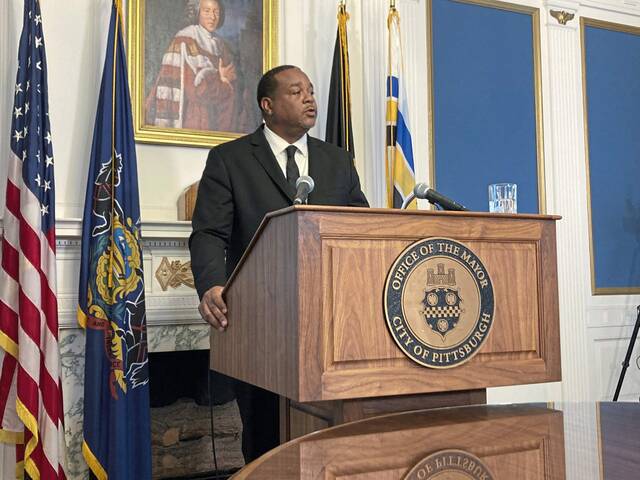With 2022 moving into October, it enters a predictable season.
No, not Halloween. Not the relentless march to the end-of-year holidays. Not the chilly transition to fall and then winter.
Taxes.
Specifically, it’s time for municipalities to start talking about budgets and whether they will raise the amount of tax levied on their residents.
With the page barely flipped on the calendar, cities, boroughs and townships are already making their early statements about budgets and millage rates — even though they have until the end of December to officially adopt final plans.
Pittsburgh Mayor Ed Gainey showed off his first proposed budget Friday. It would see $657 million in operating expenditures and another $147 million in capital projects but no increase in taxes.
It isn’t just big cities. In Westmoreland County, Jeannette is also expecting to hold the line on property taxes, according to chief fiscal officer Ethan Keedy.
And that is definitely a move taxpayers will appreciate amid high inflation and a fluctuating stock market. Keeping taxes in place gives people one thing they can know won’t change on them — unlike the price of eggs or the balance in a retirement account.
But there is a caveat with that. Tightening the belt means there’s less room to breathe.
When boroughs, townships and cities don’t build in a small increase to accommodate the regular increases that can occur any year, it means less wiggle room in the budget for the spiking price of asphalt or legal costs for an unexpected lawsuit. It doesn’t cover what happens in July if the state doesn’t fulfill its obligation to pass a budget on time. Again.
None of this is to suggest that Pittsburgh or Jeannette or any other local government keeping taxes at their lowest is doing wrong. Under the circumstances, it’s understanding and kind — two words seldom associated with the halls of power.
What it does suggest is that taxpayers have to be equally understanding in return if municipalities are forced to trim services to stay within that budget.
That doesn’t just go for the coming year but those that follow as those tax dollars build year over year. The $50 saved today is $500 over a decade for just one property, and that’s not just a number that adds up; it multiplies exponentially.
But the big thing to remember? It’s only October. Those “proposed” budgets are just plans. There are still more than two months to set them in stone and no guarantees about what will happen between now and then.








